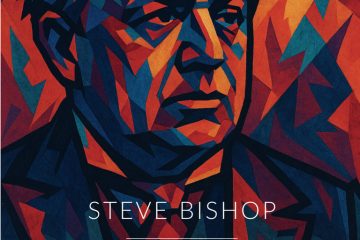Elizabeth Gurney was born in Norwich on the 21st May, 1780. She was the daughter of John Gurney, a Quaker and an owner of a woolstapling and spinning factory. Elizabeth’s mother, Catherine Gurney was also a devout Quaker. She was very involved in charity work and spent part of each day helping the poor and needy of the district.
Soon after having her twelfth child, Catherine Gurney became ill and died. Elizabeth was only twelve years old but as one of the eldest girls, she was expected to help bring up her younger brothers and sisters. In 1798 she heard William Savery, an American Quaker, preaching about Jesus and the kingdom of God. She was very moved and inspired. In her diary she wrote – “A truly good man, I have felt there is a God.”
In 1800 she married a merchant called Joseph Fry. Apparently he was a dull man who lacked conversational wit and charm but she grew to love him. They had eleven children. In 1813 she visited the infamous Newgate Prison for the first time. Here is an eyewitness account of what she experienced in the prison.
“The railing was crowded with half-naked women, struggling together
for the front situations with the most boisterous violence and begging
with the utmost vociferation. I felt as if I was going into a den of wild
beasts. I recollect quite shuddering when the door closed upon us and
we were locked in with such a herd of novel and desperate companions.”
In the jail there were over 300 women and children crowded into a small space. There were no toilets, just a bucket in the corner and very little drinking water. Can you imagine the smell? Elizabeth was horrified by this bedlam.
At the beginning of the 19th century there were more than 200 criminal offences that would lead to capital punishment (hanging). These crimes included treason, murder, rape, arson, burglary, robbery, animal theft, forgery, and the maiming of animals. Children were sometimes sent to prison for stealing bread, wool and for damaging trees! A poor boy could be transported to Botany Bay in Australia for poaching rabbits.
Newgate Prison was filled with both misery and injustice. Some of the inmates were being punished very severely for trivial offences. Elizabeth longed to bring the gospel of Jesus into this appalling setting. She began by reading the Bible to the prisoners. The American Ambassador at the time commented upon this by saying:
‘I have seen the two greatest sights in London; St Paul’s Cathedral and Mrs Fry reading the Bible to the prisoners of Newgate.’
In 1817 the Rev. C.B Taylor was so moved by Fry’s ministry that he wrote the following in his diary:
‘I was present when she read a portion of the word of God to the prisoners…….There they sat in respectful silence; every eye fixed upon the grave, sweet countenance of the gentle lady who was about to address them….never till then, and never since then have I heard any one read as Elizabeth Fry read that chapter.’
This is a wonderful example of spiritual transformation. When people hear the teachings of Jesus they can respond and find healing, forgiveness and restoration.
Elizabeth Fry wanted to see the merciful rule of God invade the prison system. She refused to privatise and individualise the Bible. She and her co-workers organised a school for the children. They also provided materials so that the prisoners could sew, knit and make goods for sale, in order to buy food, clothing and fresh straw for bedding.
Her aims in prison-reform included separating men and women, classifying prisoners and giving them employment and education. With great energy she furthered this programme in England, Scotland, Ireland, France, Germany, Switzerland, Belgium, Holland, Denmark and even Russia. Her love for jailbirds and convicts led her into politics and prison-reform.
One area where she made important changes was in the treatment of prisoners sentenced to transportation to the Australian colonies. She persuaded the government to remove the chains that the prisoners were forced to wear during the long voyage. The forefathers of the famous cricketers Shane Warne and Ricky Ponting have enjoyed considerable benefits from Fry’s Christian work.
As well as her work with prisoners, Elizabeth Fry set up organisations to work with the poor and a training school for nurses. When a small boy was found frozen to death near her home, she set up a committee to offer hot soup and a bed to homeless women and children.
Just before she died in 1845, she said the following:
“Since my heart was touched at seventeen years old, I believe I have never awakened from sleep, without my first waking thought being how best I might serve my Lord.”
It is important to consider how different people tell her story. Consider the BBC. It tells Elizabeth Fry’s story in a very different way from the way I have told her story. The BBC barely mentions Fry’s Christian faith. On the BBC website there is an account of Fry’s prison work and this account is profoundly secular. There is a token mention of her Quaker roots but after that – nothing. This should not surprise us because worldviews are always at work when we tell stories. It is impossible to tell Elizabeth Fry’s story in a neutral way. We will either ignore God or bring Him into the story. From a Christian perspective it is tragic that so few people understand the deeply Christian motivations that inspired this courageous woman who used to grace our five pound notes.
- UCB Interview with Vicky Gibbens - January 28, 2026
- The Story of Fred Lemon who met Jesus and Two Angels in Prison - November 26, 2025
- The Inspiring Story of Abraham Kuyper (1837-1920) - October 22, 2025



2 Comments
Duncan Stow · April 22, 2024 at 4:55 pm
What a powerful story of a life lived under the Lordship and inspiration of Christ. I remember Steve Chalke being asked to take the word faith out from Oasis mission weeks faithworks I was involved in many years ago and he said he wouldn’t because it is the faith that is the key ingredient. Jesus is the source of so much that we admire. Lets not be ashamed to name him
Hugh Grear · April 22, 2024 at 5:41 pm
Elizabeth Fry is clearly a passionate and dedicated woman. If she were to be asked which way her story should be told, she would undoubtedly put Jesus at the heart of it, not minimalize it to the point of exclusion. Mark’s point of view is in my opinion better than that of the BBC. I have just been reading Jenny Worth’s books (Call the Midwife) and she writes about the Workhouses in London. I would love Mark to comment on the conditions in them, as the Workhouses automatically separate families, doing great damage in the process. Their strict discipline seems pointlessly cruel. Thank you, as ever, Mark, for your wit and wisdom.
Comments are closed.